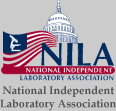Certification Standards for Bioanalyst Clinical Laboratory Director (BCLD)
(Effective December 28, 2024)
To be eligible for certification as a Bioanalyst Clinical Laboratory Director (BCLD), an applicant must fulfill the following requirements:
- Meet the qualifications as a laboratory director of a laboratory performing high complexity testing under CLIA ’88, Code of Federal Regulations, Title 42, Part 493, Subpart M, Section 493.1443(a) and either 493.1443(b)(1)*, 493.1443(b)(2)*, 493.1443(b)(4)* and have successfully completed at least 32 semester hours in chemistry or biological sciences acceptable to the Board. These hours can be earned from both undergraduate and graduate courses; OR
- Hold a Doctor of Philosophy (Ph.D.) or Doctor of Science (Sc.D.) degree from an accredited institution (see rule 11 under General Regulations) in a chemical, biological, clinical or medical laboratory science, or medical technology as the major subject and have successfully completed at least 32 semester hours in chemistry or the biological sciences acceptable to the Board. These hours can be earned from both undergraduate and graduate courses; OR
- Hold an earned Doctor of Clinical Laboratory Science (DCLS) degree or other clinical/professional doctoral degree in a chemical, biological, clinical or medical laboratory science, or medical technology, or a doctoral degree in a field that is not in a chemical, biological, clinical or medical laboratory science, or medical technology that is acceptable to the ABB Board and either have completed:
a. at least 16 semester hours of doctoral-level coursework in biology, chemistry, medical technology, clinical laboratory science, or medical laboratory science; OR
b. an approved thesis or research project in biology, chemistry, medical technology, clinical laboratory science or medical laboratory science, related to laboratory testing for the diagnosis, prevention, or treatment of any disease or impairment of, or assessment of the health of, human beings. AND
c. at least 32 semester hours in chemistry or the biological sciences acceptable to the Board. These hours can be earned from both undergraduate and graduate courses.
In addition, applicants for BCLD certification must:
- Have a minimum of four (4) years of clinical laboratory experience in a CLIA-certified high complexity laboratory** (excluding experience/training in a Waived, Moderate Complexity, or Provider-Performed Microscopy Laboratory) on human specimens gained at the minimum level of medical technologist within the ten (10) years immediately prior to the application date. This experience must include:
a. A minimum of two (2) years of experience, within the ten (10) years immediately prior to the application date, directing or supervising high complexity testing on human specimens in a CLIA-certified laboratory**; AND
b. A minimum of four (4) years of experience within the ten (10) years immediately prior to the application date on human specimens in at least three (3) of the following clinical laboratory disciplines:
- Chemistry;
- Diagnostic Immunology;
- Hematology;
- Microbiology or Public Health Microbiology;
- Molecular Diagnostics
The Board requires one year of experience in each of the three disciplines, but four years of total experience. This experience may be obtained concurrently; AND
- Have at least 20 Continuing Education (CE) credit hours in laboratory practice that cover laboratory director responsibilities defined in Section 493.1445 of CLIA regulations effective December 28, 2024; AND
- Pass the ABB examination in General Knowledge and in at least three (3) of the clinical laboratory disciplines mentioned in 1.b.
Effective January 1, 2021, Molecular Diagnostics is defined as "testing that involves the manipulation and examination of nucleic acid in a high complexity testing environment." See General Regulation #21.
* Individuals with an M.D., D.O., or DPM degree, also must be licensed to practice medicine, osteopathy, or podiatry in the state in which the laboratory is located. If the laboratory is owned and operated by the U.S. government, then the individual with an M.D., D.O., or DPM degree must be licensed to practice medicine, osteopathy, or podiatry in at least one (1) state in the U.S.
**NOTE: ABB General Regulations, rule 18, now is out-of-date. Under the new CLIA regulations effective December 28, 2024, laboratory training or experience must be obtained in a facility that meets the definition of a laboratory under 42 CFR 493.2 and is not excepted under Section 493.3(b) [exceptions to CLIA applicability]. In other words, the required training/experience must be in a CLIA-certified high complexity laboratory.
PLEASE READ - Instructions for completing the Application for ABB Certification










